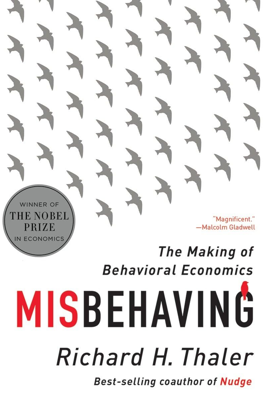Law Schooling
Exploring Behavioral Economics in Law
In 1994-95, while a visiting professor at MIT’s Sloan School of Management, the author was invited to give a plenary talk on behavioral economics applications in law, a request initiated due to the field's emerging relevance. Collaborating with Christine Jolls, an expert straddling both economics and law from MIT and Harvard, they developed a presentation, exploring how the integration of behavioral economics could reshape legal economic models traditionally founded on fully rational "Econs." This move was aimed at challenging the conventional economic frameworks that dominated legal thinking, largely propagated by the Chicago School of economics.
The Conception of "Three Bounds" in Legal Contexts
The author advanced the application of what he termed "the three bounds"—bounded rationality, bounded willpower, and bounded self-interest—within legal economics. Traditional models in this field ignored these behavioral constraints, instead trusting that markets alone would solve legal disputes efficiently. The introduction of these constraints suggested significant modifications were necessary in how law and economics approached human behavior, moving away from the notion that individuals always act with complete rationality and self-interest.
Challenges and Critiques of Established Legal Theories
Significant resistance was anticipated from traditional proponents of law and economics, particularly in the challenging of revered principles such as the Coase theorem. This theorem, central to traditional legal economic thought, posits that in the absence of transaction costs, rights and resources will naturally transfer to their highest-valued uses, independent of initial allocation. The authors argued, backed by empirical evidence from experiments like their mug trading study, that real-world behaviors like the endowment effect—where individuals value items more highly simply because they own them—contradicted predictions made by the Coase theorem and demonstrated the need to consider real-world psychological effects in legal economic models.
Elevating the Debate on Paternalism and Rationality
The paper culminated in raising controversial topics around paternalism, leveraging behavioral economics insights to question if individuals always make the best choices for themselves. It suggested that recognizing bounded rationality and self-control might justify, in certain contexts, interventions aimed at helping individuals make better decisions. This stance was particularly provocative at the University of Chicago, a bastion of free-market and libertarian thought, where the autonomy of personal choice is a fundamental principle.
Reception and Influence
Despite rigorous debate and some disagreement from the law and economic community, particularly pointed critiques from Richard Posner, a leading figure in the field, the paper was published and became highly influential, cited frequently in subsequent legal and economic discussions. It spurred ongoing debates and gradually helped push the field towards acknowledging the relevance of behavioral economics in legal settings.
Outcome and Legacy
Ultimately, the work by the author and his collaborators marked a significant turning point in legal economics. They successfully launched a substantial argument for embedding behavioral economics within legal frameworks, challenging long-held beliefs about rationality and market efficacy in legal theory. This initiative laid foundational thoughts for what has since expanded into a flourishing field of behavioral law and economics, blending psychological insights with legal theory to better represent and predict human behavior in legal contexts.
